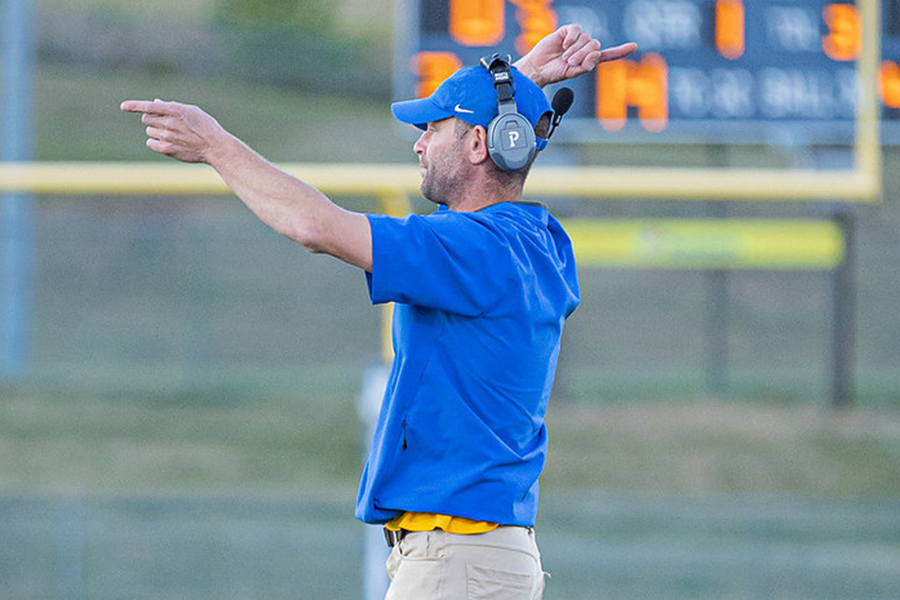The Culturally Accepting Classroom
A look into the future of ACPS’s Diversity-Inclusion Programs
Credit: Staff
WAHS’s African American History class makes cut-outs for the Black History Month bulletin board.
April 12, 2023
Albemarle County Public Schools’ Anti-Racism Policy has been a point of controversy in recent years, dividing the county public schools system into opposing sides. Largely missing from the discourse around the policy, however, is substantive understanding of what the policy actually is.
In early 2019, Albemarle County Public Schools adopted the Anti-Racism Policy. The mission of the policy is to promote diversity and equity, both in the classroom and in the inner workings of the ACPS community. This is determined by an Equity Needs Assessment that identifies disparities in the education system and solutions to close equity gaps.
ACPS has begun the process of facilitating culturally inclusive classroom environments in schools, through a program called Culturally Responsive Teaching, referred to by the initials CRT.
“Research has shown that this program is effective in raising student academic achievement in those classrooms taught by a culturally responsive teacher. Not only are students who have never passed an SOL test passing tests, but the scores of all students in the class have improved,” Judy Le, a school board member.
Much of these efforts to promote culturally responsive teaching are the results of the work of the Office of Community Engagement, who manage the equity policies and supply a team of equity specialists that certify the teachers.
“We also have had in place for two years an Equity Policy Checklist that any new policy or revised policy must pass to ensure that it does not adversely affect any of our student demographic groups or their families,” Le said.
The Equity Policy Checklist, Anti-Racism Policy, and Division Equity Table have created the outline for the Culturally Responsive Teaching program in efforts to certify educators with a culturally responsive teaching microcredential. So far, 300 teachers in the school district have received the microcredential.
“Our equity specialists work out in the schools with teams around culturally responsive teaching, so they are helping teachers with their credentialing program,” said Daphne Keiser, Assistant Superintendent of Community Engagement. “ We are currently organizing for our equity conference where we are having some of our staff members who are pursuing the microcredential and credentialing. They’re going to present their projects to the community. So it’s a way to expose them to what we’re doing in the division,” she said.
Beyond the Anti-Racism Policy, the Office of Community Engagement also addresses diversity-inclusion through the lens of the implementation of the Equity Policy and the Transgender-Gender Expansive Policy in order to promote equity in areas beyond race.
In recent years, there has been some controversy over Albemarle’s Anti-Racism policy, especially over its effect on student curriculums. Critics have raised the question of whether or not the policy promotes Critical Race Theory in schools. Last year, a small group of parents sued ACPS over the launch of the pilot program “Courageous Conversations About Race” at Henley Middle School in 2021. In the lawsuit, Ibañez v. ACSB, plaintiffs expressed concerns that the program taught Critical Race Theory and caused “white guilt.” Even though all charges against the school board were dismissed by the court, concerns over the Anti-Racism Policy’s practices continue to exist.
According to the NAACP Legal Defense Fund, “Critical Race Theory, or CRT, is an academic and legal framework that denotes that systemic racism is part of American society — from education and housing to employment and healthcare. Critical Race Theory recognizes that racism is more than the result of individual bias and prejudice.” Under this definition, Critical Race Theory is not being taught in schools.
Despite the controversy, supporters of the Anti-Racism policy and Culturally Responsive Teaching have pointed towards what they see as a positive impact on student curriculum to justify its use. One of these changes has come in the addition of new courses and topics offered to students in ACPS schools. Aligned with the Anti-Racism Policy’s standards, an African American History social studies course has recently been added to Western Albemarle High School’s array of elective class options. African American History discusses American history through the lens of a minority perspective, including a devoted discussion to defining Critical Race Theory and discussing the public controversy that has surrounded it. The course follows African American History through a chronological order, tying in historical, cultural, and modern elements of black history.
“I think at least as far as the teachers here at Western go, because we are predominantly white, the Anti-Racism Policy has encouraged us to question things about our own teaching practice. And a lot of what the Anti-Racism Policy focuses on is predictive outcomes for students of color in education,” said Dottie Akers, the African American History teacher at WAHS.
This is Akers’ first time teaching the elective course, and second year that the elective has been offered at WAHS.
Much of Akers’ inspiration for teaching the class came from her upbringing. Akers grew up in Brunswick County, a predominantly Black community. When she relocated to the Charlottesville area, she described the lack of diversity as a “pretty big culture shock.” For her, there is an educational necessity to offer students information on diverse viewpoints that they might not learn otherwise in a homogenous community.
While her social studies endorsement qualified her for the class, Akers has gained expertise for teaching the subject through African American studies classes that she took while attending the University of Virginia (UVA).
“The state of Virginia created the course. So I go off of that curriculum which is largely chronological, so it’s kind of aligned for students who are juniors with what they’re doing in AP US or US history, just on a more detailed scale from a different perspective.”
Even in the face of controversy, employees of the various equity offices and supporters of the county policies on equity are firm in their belief that ACPS should continue to be proactive in combating discrimination of all kinds. When analyzing society’s equitable standards and the vision for the future, Eric Irizarry, Director of Equity, Family, and Community Relations recognized that, “We still have pretty dire learning gaps between some of our student groups, especially if they’re at the early ages, and we feel passionately that it’s a combination of family engagement, good instruction, but also a good cultural lens on the students that you’re serving. And if all three areas are strong, then we’ll start to see those gaps close.”








